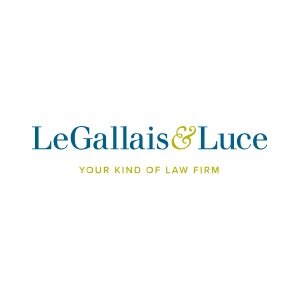Best Renewable & Alternative Energy Lawyers in Saint Helier
Share your needs with us, get contacted by law firms.
Free. Takes 2 min.
List of the best lawyers in Saint Helier, Jersey
About Renewable & Alternative Energy Law in Saint Helier, Jersey
Saint Helier, the capital of Jersey in the Channel Islands, is increasingly focused on the transition to renewable and alternative energy sources. The island’s government has set ambitious environmental targets to reduce carbon emissions and promote sustainable energy solutions for homes, businesses, and public infrastructure. Renewable and alternative energy law in Saint Helier encompasses the regulations, policies, and incentives designed to encourage the use of energy sources such as solar, wind, tidal, geothermal, and bioenergy, as well as energy efficiency initiatives. These laws also cover planning, licensing, and environmental compliance requirements related to energy projects.
Why You May Need a Lawyer
Engaging in renewable or alternative energy projects in Saint Helier can be complex and may require legal assistance for several reasons. You may need a lawyer if you are:
- Installing solar panels or wind turbines on residential or commercial property
- Negotiating power purchase agreements or energy supply contracts
- Seeking planning permission or environmental permits for new energy installations
- Dealing with land rights, easements, or property disputes related to energy projects
- Understanding eligibility for government incentives or grants
- Navigating regulatory compliance requirements
- Participating in community or partnership-based energy projects
- Dealing with grid connection and energy export arrangements
- Resolving disputes with local authorities or energy providers
- Facing legal action related to environmental impact or health and safety
Local Laws Overview
Renewable and alternative energy activities in Saint Helier are primarily governed by a framework of local laws, regulations, and policies set by the States of Jersey. Key elements include:
- The Planning and Building (Jersey) Law 2002 establishes requirements for planning permissions, especially for renewables installations like solar panels or wind turbines that modify building exteriors or impact the environment.
- Energy Plan for Jersey outlines the island's commitment to reducing reliance on fossil fuels, setting targets for emissions reductions and increasing renewable energy production.
- Environment Protection Laws regulate impact assessments, emissions, and the protection of wildlife and natural habitats, which can be relevant to larger energy projects or those near protected areas.
- Electricity (Jersey) Law 1937 and related amendments govern the operation, supply, and safety standards for electricity generation and distribution in Jersey.
- Specific incentives, grants, or subsidies may be available for renewable energy technologies, but eligibility criteria and application processes must be strictly followed.
- All grid-connected installations require coordination with Jersey Electricity and may be subject to grid code requirements.
Frequently Asked Questions
What renewable energy sources are most commonly used in Saint Helier?
Currently, solar power and biomass are among the most popular options for local use. There is also growing interest in offshore wind and tidal energy due to Jersey’s coastal advantages.
Do I need planning permission to install solar panels on my property?
Yes, most residential and commercial installations require planning permission, particularly if the panels change the exterior appearance of the building or are located in protected areas. It is important to consult with the local planning department.
Are there financial incentives for installing renewable energy systems?
There are occasionally incentives or grants offered by the Government of Jersey or related agencies. The availability and conditions change, so it is advisable to check current programs before starting your project.
What regulations apply to connecting renewable energy systems to the grid?
Grid connection requires approval from Jersey Electricity and must comply with grid code requirements concerning safety, technical standards, and export limitations.
Can businesses sell excess energy back to the grid?
Some schemes allow for the export of surplus energy to the grid, but specific conditions and agreements must be met. Legal advice is recommended to ensure compliance with local regulations and contracts.
What environmental permits are needed for renewable energy projects?
Depending on the scale and location, projects may require environmental impact assessments and permits from the Department of the Environment to ensure they do not harm local wildlife or habitats.
Are there restrictions on the location of wind turbines or large installations?
Yes, restrictions apply especially in populated or environmentally sensitive areas. Setback distances, visual impact, and noise regulations must be considered during planning.
How do I resolve disputes with neighbors over renewable energy installations?
Disputes related to noise, view obstruction, or property boundaries can arise. It is best to seek legal advice or mediation services to resolve such issues amicably and within the legal framework.
What are the main legal challenges for community energy projects?
Community projects often face challenges including land access agreements, joint ownership structures, regulatory compliance, and financial arrangements. A lawyer can help draft clear agreements and ensure compliance with local law.
Can a non-resident invest in renewable energy projects in Saint Helier?
Yes, non-residents can invest, but there may be additional requirements regarding land ownership, business registration, and compliance with local regulations. Legal due diligence is essential in such cases.
Additional Resources
For more information on renewable and alternative energy in Saint Helier, Jersey, the following resources and organizations may be useful:
- Government of Jersey - Environment and Planning Department
- Jersey Electricity - Energy and Grid Connection Services
- Jersey Renewable Energy Commission
- Jersey Business - Sustainability Support and Advice
- Environmental groups such as Jersey Energy Forum and sustainable development non-profits
- Local law firms with expertise in environmental and energy law
Next Steps
If you are considering a renewable or alternative energy project in Saint Helier, or have encountered a legal issue in this field, it is important to seek professional legal advice. Start by gathering all relevant documents such as plans, permits, existing contracts, and correspondence with local authorities. Contact a local solicitor experienced in energy law to discuss your situation and outline your objectives. Many law firms offer initial consultations and can guide you through compliance, contracting, and dispute resolution. You may also want to consult with the appropriate government departments and review any available guidance or documentation for your specific type of project. Timely legal advice can help you navigate regulatory requirements, secure permissions, and protect your interests throughout the process.
Lawzana helps you find the best lawyers and law firms in Saint Helier through a curated and pre-screened list of qualified legal professionals. Our platform offers rankings and detailed profiles of attorneys and law firms, allowing you to compare based on practice areas, including Renewable & Alternative Energy, experience, and client feedback.
Each profile includes a description of the firm's areas of practice, client reviews, team members and partners, year of establishment, spoken languages, office locations, contact information, social media presence, and any published articles or resources. Most firms on our platform speak English and are experienced in both local and international legal matters.
Get a quote from top-rated law firms in Saint Helier, Jersey — quickly, securely, and without unnecessary hassle.
Disclaimer:
The information provided on this page is for general informational purposes only and does not constitute legal advice. While we strive to ensure the accuracy and relevance of the content, legal information may change over time, and interpretations of the law can vary. You should always consult with a qualified legal professional for advice specific to your situation.
We disclaim all liability for actions taken or not taken based on the content of this page. If you believe any information is incorrect or outdated, please contact us, and we will review and update it where appropriate.











